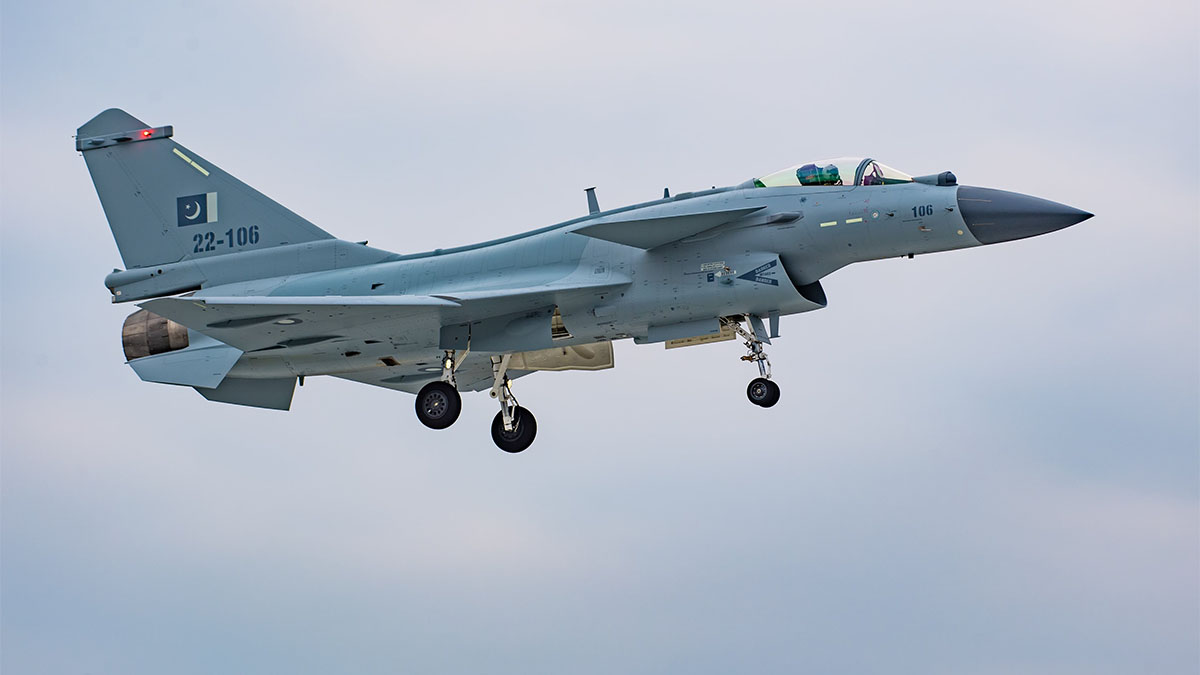Many are celebrating the ceasefire between India and Pakistan.
But not Chinese defence firms.
In fact, Chinese defence stocks have slumped ever since the two countries announced the ceasefire on May 10.
The development came days after Chinese defence stocks surged following India’s launch of Operation Sindoor.
But what happened? Why did this happen? What do we know?
Let’s take a closer look
What happened?
Shares of major Chinese defence firms came under heavy pressure on Tuesday.
As per Moneycontrol, China’s Hang Seng China A Aerospace & Defence Index was three per cent lower on Tuesday.
Meanwhile, AVIC Chengdu and Zhuzhou Hongda were 8.6 per cent and 6.3 per cent lower respectively.
As per Financial Express, shares of China State Shipbuilding Corporation – a firm that makes both military and commercial ships – fell over four per cent.
Catch India-Pakistan ceasefire live updates here
This came days after some Chinese defence firm shares increased as much as 36 per cent over two days last week.
AVIC Aerospace, listed in Hong Kong, was up over six per cent.
As per Economic Times, AVIC Chengdu Aircraft saw a 17 per cent rise on Wednesday and a 20 per cent rise on Thursday – its biggest two day gain since October 2024.
Chengdu Tianjian Technology, Sun-Create Electronics, and Chengdu ALD Aviation also all increased almost 10 per cent last week.
Why did this happen?
Because many of these firms manufacture arms and equipment that India destroyed during Operation Sindoor .
As per News18, Aviation Industry Corporation of China (AVIC) is a big state-owned firm that makes much of Beijing’s aircraft and weapons.
The AVIC Chengdu Aircraft makes J-10C fighter jets as well as the JF-17 Thunder planes – which are considered the backbone of the Pakistan Air Force since the US stopped supplying Pakistan with F-16s.
Economic Times quoted India’s Air Force Air Marshal AK Bharti as saying that India shot down a few Pakistani warplanes during Operation Sindoor.
“Their planes were prevented from entering inside our border… Definitely, we have downed a few planes… Definitely, there are losses on their side which we have inflicted,” said Air Marshal Bharti. He assured that “all our pilots are back home.”
Foreign Minister Ishaq Dar confirmed that these were deployed during the engagement with India.
Zhuzhou Hongda, meanwhile, manufactures the PL-15 missiles used by the Pakistan Army.
India shot down the Chinese-made PL-15 air-to-air missiles, designed by China’s Luoyang-based China Airborne Missile Academy (CAMA), during the conflict.
Zhuzhou Hongda also makes electronic components for the military, as per Financial Express.
Pakistan remains dependent on China
The development only further highlights Islamabad’s growing dependence on Beijing when it comes to military arms and equipment.
China remains the largest seller of weapons to Pakistan.
From 2020-2024, Beijing comprised 81 per cent of Islamabad’s defence exports, as per data from Stockholm International Peace Research Institute (SIPRI).
Pakistan between 2019 and 2013 imported arms worth $5.28 billion from China.
That comprises around 63 per cent of its total arms imports, as per SIPRI data.
Making things worse for Pakistan, experts say China is giving its ‘all-weather friend’ equipment that is inferior to what it uses domestically.
A piece in News18 noted that the JF-17’s radar is inferior to the one that India’s Rafale has – which impacts detection range and accuracy.
It also noted that the PL-15E missiles have a smaller range (around 145 kilometres) compared to China’s domestic PL-15S (200 to 300 kilometres) – which gives the advantage to India’s Rafale jets which are equipped with Meteor missiles with a 200 kilometre range.
“China’s refusal to share cutting-edge technology, such as the J-20 stealth fighters, has left Pakistan with outdated systems, while India’s mix of Russian, Western, and homegrown technology has reduced its dependency risks and enhanced adaptability,” the piece stated.
India defence stocks soar
India’s defence stocks, meanwhile, soared today.
Shares of Hindustan Aeronautics Ltd (HAL), Bharat Dynamics Ltd and Bharat Electronics Ltd (BEL) rose by up to eight per cent.
BDL rose 7.81 per cent to hit a high of Rs 1,692.35. HAL increased 4.32 per cent to Rs 4,631.35.
BEL surged 4.28 per cent to Rs 336.60. Zen Technologies increased 4.3 per cent to Rs 1,539.95. Data Patterns (India) Ltd gained 2.45 per cent to Rs 2,442.75. Astra Microwave Products Ltd increased 2.79 per cent to Rs 892.15.
With inputs from agencies


)

)
)
)
)
)
)
)
)



